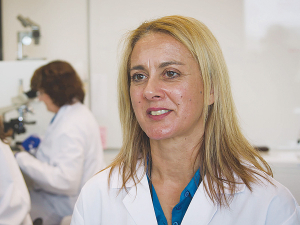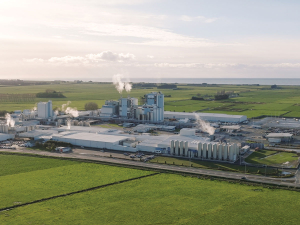A runny nose and fever can be caused by the flu, Covid, an allergy, or something completely different. Sometimes infected people have no symptoms.
Similarly, Staph. aureus is a bacteria that doesn't always trigger an immune response in infected cows. Despite being common, it can remain hidden in the herd, leading to many cows being infected, according to Farm Medix, a company providing mastitis reduction solutions for farmers.
A cow with a somatic cell count (SCC) as low as 20 or as high as a million may have Staph. aureus. While SCC is an effective measure of immune response, it should not be used to determine a cow’s infection status. At bulk tank level, SCC gives an overall indication of the health status of the herd. It is generally accepted that 100 SCC level corresponds to approximately 10% of the herd with subclinical mastitis, 250, 25%, etc. but does not give any indication of what the problems are. Staph. aureus infections are mostly subclinical, showing few signs that something is going on.
Farm Medix chief scientific officer Natasha Maguire points out that only 5% of cows infected with Staph. aureus will show clinically.
To effectively combat Staph. aureus, it is crucial to individually test the entire herd for the pathogen, says Maguire. Any strategy that uses SCC levels to select cows for testing, typically above 150 SCC, may offer temporary relief. But it doesn’t fully solve the problem.
Infected low SCC cows will remain in the herd and continue to spread the infection, says Maguire.
“A single infected cow can expose up to six herd mates in a single milking due to Staph. aureus’ contagious nature”, she says.
“For every clinical cow with Staph. aureus, many others will be hidden, and driving up SCC.”
Staph. aureus is deceptive. Like no other infection, it has a major impact on milk quality, productivity, costs and even fertility. A recent farm study conducted in the Waikato revealed that “clean” cows produced 45% more milksolids than Staph. aureus cows.
Driven by these facts, Farm Medix says it developed a unique approach to control Staph. aureus infections, offering farmers easy on-farm diagnosis methods using the gold standard of bacterial plate culture for their diagnostic tests.
“Traditional approaches based on clinical cases and somatic cell count often fail to detect the predominantly subclinical mastitis cases caused by Staph. Aureus, making this new solution a major positive shift,” says Maguire.
An early, systematic, and accurate detection is the only way to stop the infection before it spreads. Screening each cow in a herd can serve as a reset point when a herd faces persistent challenges. Then, to maintain a healthy herd, all new cows entering the herd – Clinical, Fresh, and Replacement cows – should be tested.
Maguire stresses the importance of proper sampling techniques.
“Sampling is critical and needs to be done directly from the teat into a sterile container to minimise any potential contamination from shared milk lines among cows.”
Proper milking and herd management procedures should also be implemented to limit contamination risks, such as segregating infected cows and milking them last, along with using recommended active ingredients for effective teat disinfection.
For Colin May, FIL national sales manager, when farmers screen their herds, implement the team’s recommendations, and separate Staph. cows, they achieve positive outcomes.
“We consistently observe a substantial reduction in clinical mastitis within the clean herd,” says May.
Farmer Tony Hollinshead, who milks 300 cows in Matamata says they haven’t had a single case of mastitis in the clean herd since the Herdscreen.
“I never imagined in my wildest dreams that this problem would stop.”
Farm Medix says its approach has gained significant traction. Their latest product, Fresh Cow Dry Cow, has been selected as a finalist for the 2023 Fieldays Innovation Awards.
“This recognition highlights our commitment to empowering dairy farmers with cutting- edge technologies for improved profitability and the well-being of their herds,” says Foucauld Thery, Farm Medix’s chief executive officer.


















